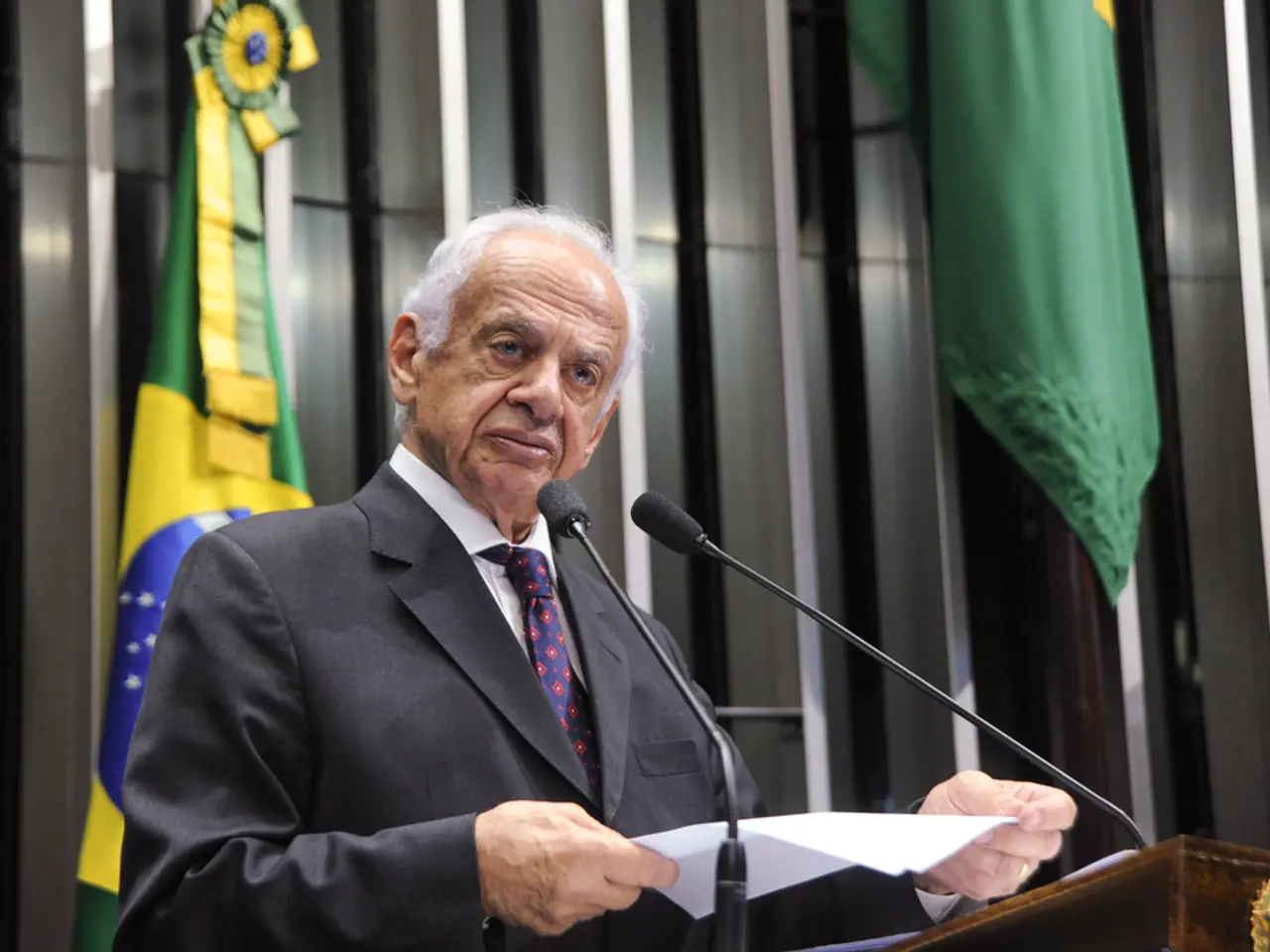Economy Minister Critiques EU's 'Embargo' and Advocates for Federal Recognition along A643, Mainz's Principal Thoroughfare
The proposed expansion of the A643 highway near Mainz, Germany, has been a contentious issue for over a decade. The Rhineland-Palatinate Ministry of Transport has expressed criticism following the EU Commission's rejection of the six-lane expansion, viewing it as essential for improving traffic flow and road safety in the region.
The EU Commission's decision to reject the six-lane expansion is based on insufficient compatibility testing, compensation measures, and examination of alternatives. However, the Commission did mention the 4+2 solution, indicating that an expansion of the route could still be necessary.
Daniela Schmitt, the Rhineland-Palatinate Transport Minister, emphasises the necessity of the six-lane expansion for the competitiveness of the economic location, logistics, freight traffic, and thousands of daily commuters. She criticises the EU Commission's criticism as not convincing and sending a fatal political signal.
On the other hand, the SPD, Greens, and the Mainz alliance "No to the (Mainz) Sand" welcome the EU's decision and demand that the expansion plans be put on hold. The chairman of the Left faction in the Mainz city council argues that the expansion threatens the unique biotope of Mainz Sand, with unforeseeable consequences for the city's internal climate.
The Left party also contends that many commuters using the route would prefer to travel by bus and train instead of relying on a car. They advocate for a fundamental change in traffic planning, advocating for less motorized individual traffic and better infrastructure in public transport.
Schmitt warns of the consequences of further delays, stating that the aging Vorland Bridge is a safety-critical bottleneck, and without planning for expansion, no bridge replacement is possible. She has demanded a clear political commitment from the federal government and negotiations with Brussels, specifically from Federal Transport Minister Patrick Schnieder (CDU).
The LBM study has shown that the use of the hard shoulder during peak times would be difficult with the 4+2 variant due to the many on and off ramps. The construction of noise barriers is planned, but they would further reduce the area of the sand with the 4+2 expansion. Interestingly, the necessary emergency lanes in the 4+2 variant would almost seal as much area as a six-lane expansion.
The Mainz FDP has expressed full support for Schmitt, stating that the provisional no from the EU Commission is a step backwards and that it's time to move forward with the expansion of the A643. They argue that a full expansion would provide more effective noise protection for citizens and allow for the construction of the planned Green Bridge.
In summary, the EU Commission's rejection of the six-lane expansion of the A643 near Mainz has sparked a heated debate. While the Rhineland-Palatinate Ministry of Transport and the Mainz FDP view the expansion as crucial for regional mobility and growth, environmentalists and some political parties oppose it, citing concerns about the environment and public transport. The future of the A643 expansion remains uncertain, with negotiations between the Rhineland-Palatinate government and the EU Commission ongoing.
- The discussion over the A643 highway expansion near Mainz, Germany, has unfolded as a significant policy-and-legislation issue, with economic growth proponents like Daniela Schmitt, the Rhineland-Palatinate Transport Minister, arguing for it, while environmentalists and political parties like the SPD, Greens, and the Mainz alliance "No to the (Mainz) Sand" challenge its necessity, highlighting concerns about the environment and public transport.
- The ongoing debates surrounding the A643 expansion near Mainz, Germany, have delved deep into the politics of road development, with parties like the Mainz FDP supporting the project for reasons such as improved traffic flow, road safety, and noise protection, while parties such as the Left faction advocate for a fundamental shift in traffic planning, promoting less motorized individual traffic and better infrastructure in public transport.







